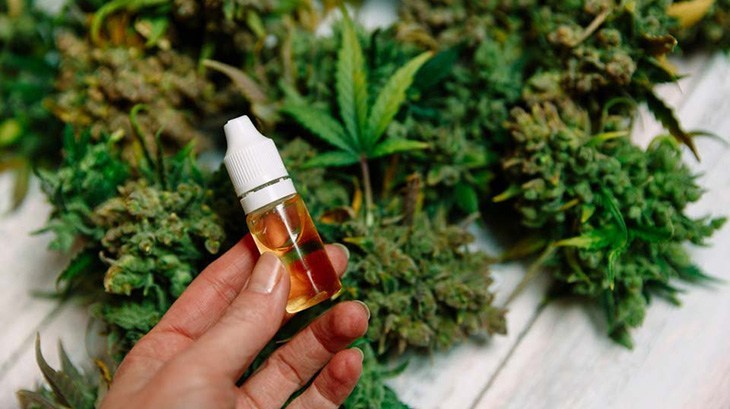Coincides with House Vote on the Marijuana Opportunity Reinvestment and Expungement Act (MORE Act)
Last Prisoner Project Announces First Installment of
Criminal Injustice: Cannabis & The Rise of the Carceral State
PRESS HERE to access Part 1: The Policing of Marijuana Prohibition
NEW YORK, September 8, 2020 — Today, the Last Prisoner Project released Part 1 of its four-part Criminal Injustice: Cannabis & The Rise of the Carceral State. This landmark study details the devastating human and economic costs America’s cannabis policies have had on the country’s criminal justice system—and society as a whole. The first installation focuses on [cannabis] prohibition’s impact on American law enforcement agencies, and illustrates the numerous ways our nation’s cannabis policies have fueled the over-policing of underserved neighborhoods, the militarization of law enforcement agencies, and countless other threats to America’s health, safety and security.
In recent months, countless Americans—of all races, colors, and political creeds—have taken to the streets to demand a reimagining of our country’s policing practices. At the same moment, Congress has a once-in-a-lifetime opportunity to vote on legislation that would remove cannabis from the Controlled Substance Act. The MORE Act—which is scheduled for a House vote this month—would essentially end the nation’s nearly century-long prohibition of [cannabis].
Last Prisoner Project’s Executive Director Sarah Gersten said, “A key focus of Last Prisoner Project is our direct service work to release currently incarcerated cannabis prisoners. Now, more than ever, it is imperative for us to also seize on the opportunity to reform our justice system through cannabis-related policy solutions that work to end the vicious cycle of Americans being caught up in every aspect of the criminal legal system. I am thrilled that Natalie Papillion is coming on board to lead LPP’s policy arm so that we can more effectively push for broad, systemic change.”
“As headline after headline and data point after data point demonstrate, the War on Drugs has really always been a War on People. And more specifically, a war on Black and brown people,” said Natalie Papillion, the primary author of the paper. “As the paper illustrates, America’s current approach to cannabis has only served to animate and exacerbate many of the social injustices and racial inequities the country is grappling with today,” she adds. “It’s our sincere hope that Criminal Injustice gives policymakers the context, data, and analysis they need to end [cannabis] prohibition and further dismantle our discriminatory, expensive, and ineffective War on Drugs.”
Nearly 90% of Americans support an end to our current federal [cannabis] prohibition. Despite this, American law enforcement agencies have made over 6 million arrests — and nearly 15 million stops and citations — for [cannabis] possession over the past decade. And, despite state-level reforms, these numbers have increased in recent years. Shockingly, law enforcement agencies make more arrests for [cannabis] possession every year than for all ‘violent’ crimes combined.
And though African-Americans consume cannabis at the same rate as their white peers, they’re nearly 4 times more likely than white Americans to be arrested for [cannabis] possession. The paper invites politicians, policymakers and the public to make their voices heard and demand just, effective and common-sense cannabis policy reforms.
“As Americans, we believe in the importance of liberty, opportunity and equal justice under the law. Our ineffective and unjust policy of [cannabis] prohibition doesn’t just fail to live up to these values — it actively undermines them. Criminalizing people who use [cannabis], needlessly entangles millions of people in the criminal legal system each year at a tremendous societal cost,” Papillion added. “Taking a common-sense approach to cannabis policy will help combat injustice, protect our freedoms and ensure the health, security and prosperity of all American communities.”
Press Here to access the Part 1 of the full report.
ABOUT THE LAST PRISONER PROJECT
The Last Prisoner Project (LPP) is a nonprofit organization dedicated to cannabis-related criminal justice reform. As the United States moves away from the criminalization of cannabis, giving rise to a major new industry, there remains the fundamental injustice inflicted upon those who have suffered under America’s unjust policy of cannabis prohibition. Through intervention, advocacy and awareness campaigns, the Last Prisoner Project works to redress the past and continuing harms of these inhumane and ineffective laws and policies. Visit www.lastprisonerproject.org or text FREEDOM to 24365 to donate and learn more.
LPP MEDIA CONTACTS
Linda Carbone and Katie Leggett
PRESS HERE
linda@presshereproductions.com // katie@pressherepublicity.com
Katie Leggett
PRESS HERE (New York)
138 W. 25th St., 9th Floor, New York, NY 10001
P: (212) 246-2640








